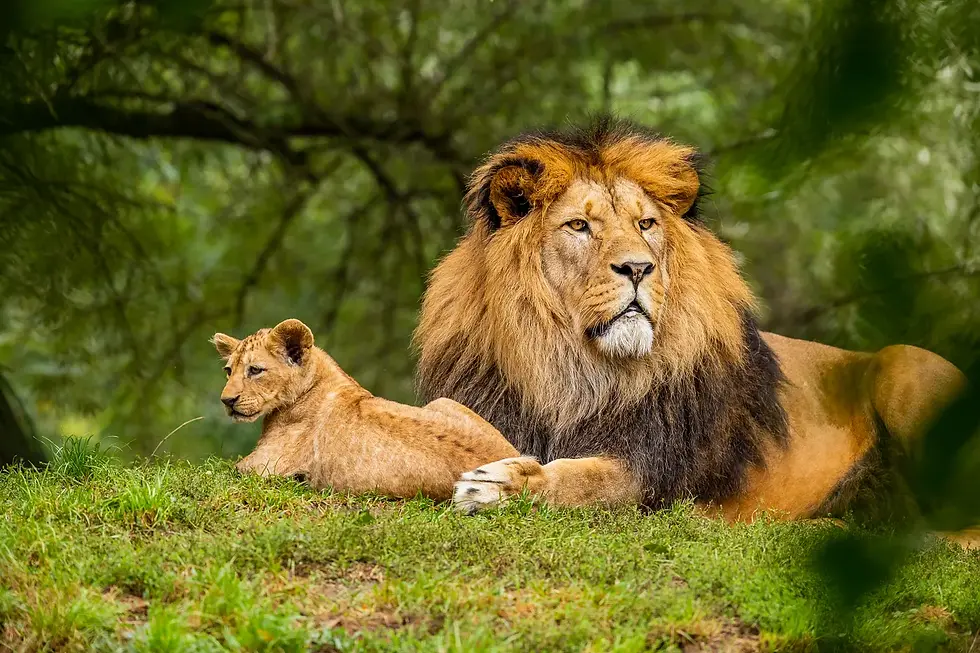The Importance of a Rite of Passage for American Children
- Deborah Holmén

- Apr 17, 2024
- 5 min read
Updated: Apr 26, 2025
Why every child needs a meaningful transition into adulthood.
By Deborah Holmen, M.Ed., NBCT, Published in A Parent is Born

Children in the United States are growing up in an increasingly complex and challenging environment. With technology at their fingertips and an overwhelming amount of information without constructive discernment, children often feel disconnected and lost.
This is why many experts are calling for a new “right of passage” for American children, which would provide them with the guidance and support they need to navigate the challenges of growing up in the 21st century.
Our American society has lost its sense of direction and purpose, leading to our children becoming the 'lost generation.' While this generation is highly skilled in technology and information, it needs the ability to innovate. It is common to hear adults discussing this issue and fearing how it may play out for their children.
By creating a sense of belonging, purpose, and grit, rights of passage may be what our American youth need to navigate the challenges of adolescence and emerge as confident, capable adults.
Benefits of a Right of Passage for Young People
A right of passage is a traditional rite or ritual that marks the transition from one stage of life to another, typically from childhood to adulthood. It involves a series of challenges or experiences designed to help young people develop a sense of purpose, confidence, and responsibility.
Throughout history, many cultures have established unique and significant rites of passage to mark the transition from childhood to adulthood. These rituals and ceremonies are often deeply rooted in tradition and serve to prepare and guide young people through the challenges and responsibilities of adulthood.
The Maasai tribe of Kenya and Tanzania has a ceremony called Eunoto, which marks the transition of young men from warrior to junior elder status. The young men shave their heads, dress in black, and engage in traditional dances and rituals during the ceremony.
Another example is the Jewish culture, which has a right of passage for boys called Bar Mitzvah and for girls called Bat Mitzvah. These ceremonies mark the transition from childhood to adulthood and are held when the child turns 13. The child reads from the Torah during the ceremony and participates in other religious rituals.
The Australian Aboriginal culture has a right of passage for young men called the Walkabout. This involves several months during which young men leave their communities to live in the wilderness and learn about their culture through traditional practices and rituals. They return to their communities as adults and are considered to have gained essential knowledge and skills.
When my daughter was seventeen, she decided she wanted to go to Thailand after she graduated early from high school. She had dreamed of visiting this far-off land since she was a child. I felt blessed that I had a daughter who desired to see the world and expand her ‘only-child’ experiences. It was transformative for her and me, and I witnessed her growth and potential to explore during this formative time.
As a parent, it gave me a chance to see all she learned in those seventeen years and the skills she still needed to acquire. Was it scary for me to let her go to another end of the Earth? Hell yes!
However, I trusted my gut, which told me this trip would be crucial for her growth and for her to realize she had what it took to become an autonomous adult.

Experience is the best teacher
As a twenty-five-year veteran in education, I wanted to provide my students with enriching experiences that help them develop essential life skills and qualities. One area I explored with my students was learning valuable lessons about finance, responsibility, and choices by creating classroom economics, from renting their desks to performing jobs and earning income from daily tasks.
I even ‘burned the classroom down’ when our town was experiencing wildfires that threatened homes in the area. The students quickly learned the importance of home insurance, especially those who chose to go without it to save their precious bucks.
In my book, "It Takes a Lot of Sh*t to Grow Beautiful Flowers: A Gardener’s Guide to Life," I share several life skills I taught to my students and observed them growing into curious and confident individuals.
However, I realized they only had nine months with me to expand their experiences. My students needed more exploratory learning experiences to become decision-makers and critical thinkers.
As parents and educators, we are responsible for guiding our young adults toward personal growth and a broader understanding of the world around them. One of the most effective ways to achieve this is by offering them challenges that push them out of their comfort zones and expand their horizons.
Getting Comfortable With Being Uncomfortable
These challenges can take many forms, are available in most areas, and are accessible for most social and economic levels since many have grant programs.
Wilderness camping
Wilderness camping provides an opportunity for young adults to disconnect from technology, reconnect with nature, and develop self-sufficiency skills. Outward Bound is one such organization that offers outdoor experiential learning programs to youth and adults.
Founded in 1962, Outward Bound offers a range of courses that challenge participants physically, mentally, and emotionally and aim to develop their leadership, self-confidence, and resilience. These courses usually occur in wilderness areas and involve activities such as backpacking, rock climbing, sailing, and canoeing.
Outward-bound programs help individuals develop life skills and values such as teamwork, communication, problem-solving, and critical thinking.
Community Service
Community service projects allow our youth to positively impact their communities, develop empathy, and learn about the needs of others.
These projects may involve volunteering at local charities, organizing fundraising events, or working with local government agencies to identify and address community needs. By engaging in community service, our kids can develop their empathy and understanding of the diverse needs of others.
They may also gain valuable skills, such as teamwork, leadership, and problem-solving, which can be applied in their personal and professional lives. I also noticed that students who participated in these programs developed an early sense of what they wanted to do in their lives because they could see the impact of their actions early on.
Leadership development programs
Participating in leadership development programs is an excellent way for young individuals to cultivate and strengthen their leadership skills, including communication, decision-making, and problem-solving.
These programs provide a platform for our youth to build confidence and self-esteem and equip them with the tools and techniques to work effectively with others. Through various workshops, seminars, and activities, participants learn how to leverage their unique strengths and collaborate with diverse groups of people, ultimately preparing them to become successful leaders in their personal and professional lives.
Various programs can be found at:
A right of passage is a powerful tool for helping American children thrive in today’s complex and challenging world. By giving them the support and guidance they need to navigate the challenges of growing up, we can help them develop into confident, capable, and compassionate adults ready to positively impact the world around them.









Comments